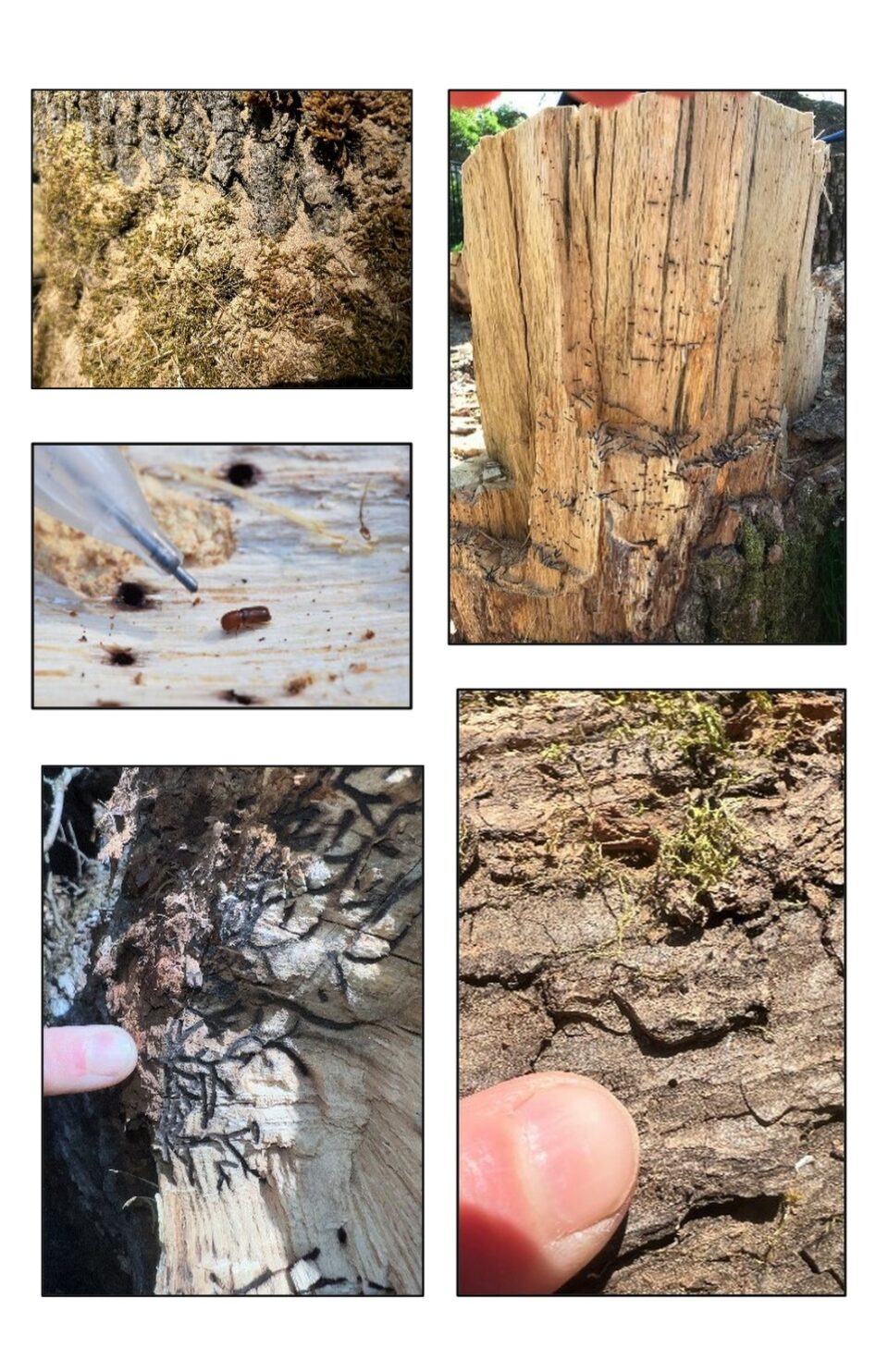WILSONVILLE, Ore. – An invasive insect from Europe and the Middle East that attacks oak trees has recently been found in several Oregon white oaks in Wilsonville. The Mediterranean oak borer (Xyleborus monographus) transmits multiple fungal species to the trees it infests. Some fungal species may cause a disease called oak wilt, which may kill oak trees in as little as two to three years.
Mediterranean oak borer (MOB) is a tiny woodboring beetle called an “ambrosia beetle” because instead of feeding on wood, it eats fungus grown in galleries created in the wood of branches and trunks. The fungus grows, robbing tree canopies of water necessary for growth and survival. This insect was first found in North America when it turned up in 2017 in California, where it has been responsible for the decline and death of many native oak trees. In Europe, it has also been reported from elm, maple, and walnut trees, although damaging attacks have not been reported for these other tree types.
Oregon Dept. of Forestry (ODF) Invasive Species Specialist Wyatt Williams said, “MOB was found in a single trap set by ODF in Multnomah County, Oregon in 2018. It was then found in traps in 2020 in Marion County, and in 2021-2022 in Clackamas and Washington counties. This spring it was found in a single Oregon white oak at Sandy River Delta.”
Cody Holthouse, IPPM Program Manager for the Oregon Dept. of Agriculture, said his agency and ODF have been in touch with their California counterparts to assess the impact of MOB on native and introduced oaks, while also exploring what control measures they recommend. “Scientists at both agencies are actively planning survey and management strategies for this pest. We expect to have more answers in coming weeks and months.”
In the meantime, the departments of Forestry and Agriculture are asking people not to move firewood from oak trees beyond the local area where it is cut, to avoid spreading the insect pest.
Landowners are asked to review the signs and symptoms of MOB below and report oaks with both crown dieback and any of the symptoms below to the Oregon Invasives Hotline at https://oregoninvasiveshotline.org/login/?next=/reports/detail/2018ger
Signs and symptoms of Mediterranean oak borer infestation
1) MOB is a tiny, reddish-brown beetle that can be confused with many other beetles that reside in oak.
2) Pale boring dust is kicked out by the beetle and found on the exterior trunk of the tree.
3) MOB galleries look like tiny black holes from the exterior of the wood and,
4) black, branched trellises on the cut face of wood.
5) MOB create tiny, perfectly round entrance holes.
Symptoms not from MOB: holes larger than the diameter of a pencil lead, brown boring dust, discolored leaves but absence of dieback, wood staining without associated galleries. For info on other oak pests go to: https://www.oregon.gov/odf/Documents/forestbenefits/Oak_galls_2017.pdf












